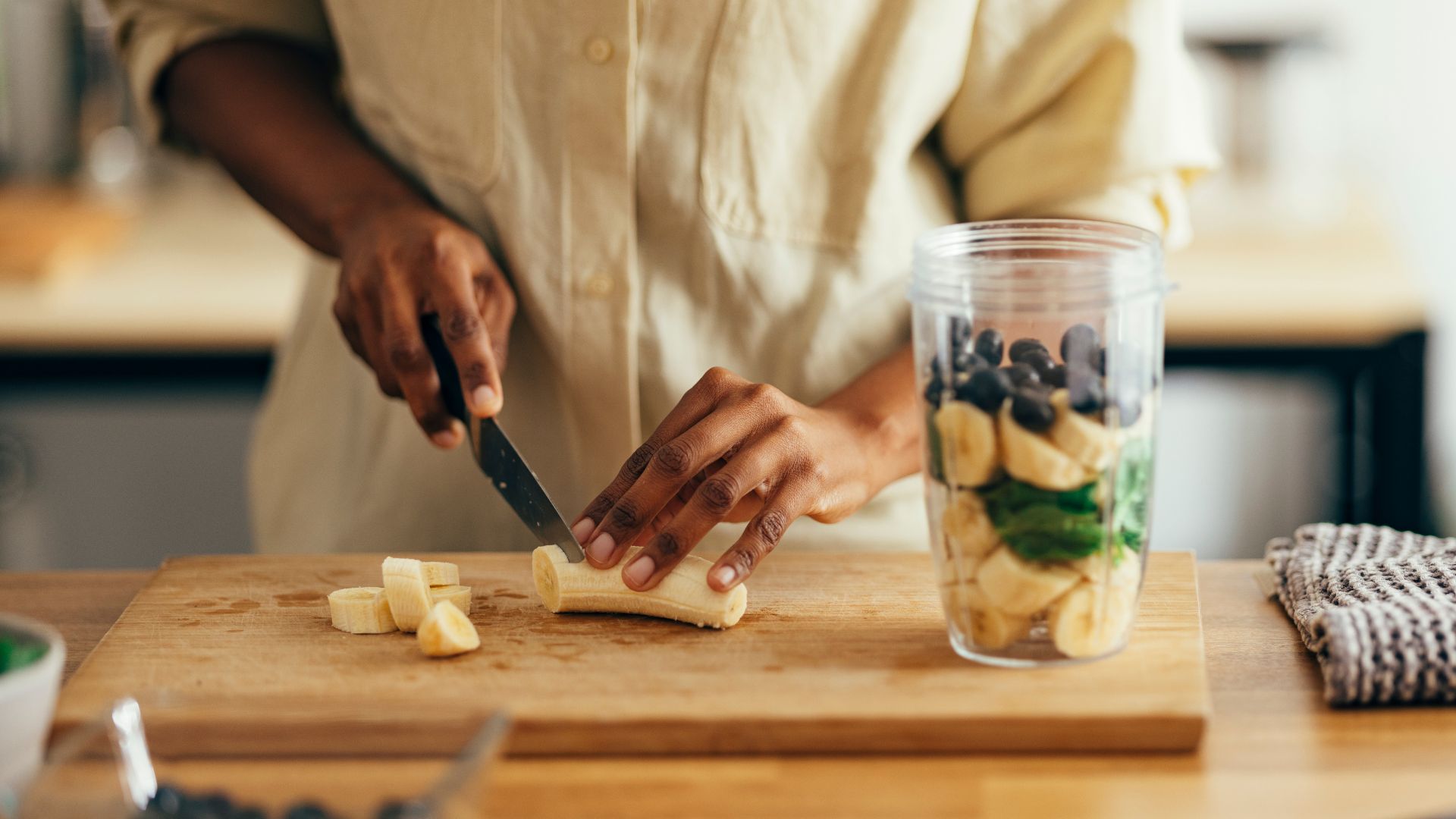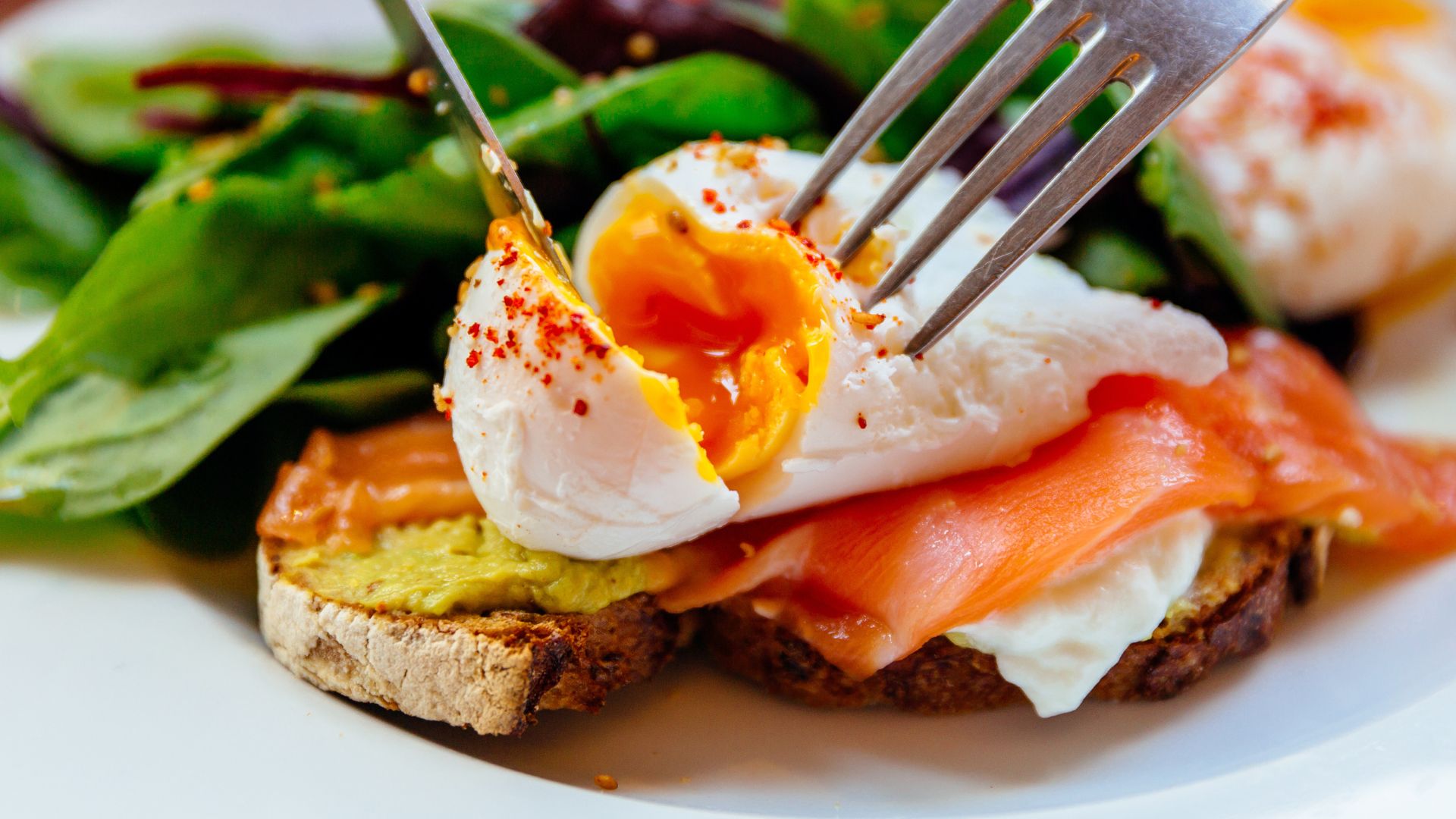Want to lose weight without exercise? These 11 lifestyle tips can help, as revealed by the experts
Whether you're not able to work out or just don't want to, you can learn how to lose weight without exercise with a couple of lifestyle changes


Exercise is good for us. We know this by now. Whether it's a walk, a game of tennis, or sessions in the gym, moving our bodies has many benefits, from a reduced risk of cardiovascular disease to better mental wellbeing. It can also help with weight loss.
But even the best exercises for longevity aren't the be-all and end-all for anyone looking to lose weight sustainably and healthily, says Arj Thiruchelvam, a performance and nutrition coach. "Weight loss is created by a calorie deficit, which is a negative energy balance where you consume fewer calories than you burn," he says.
We (or our fitness trackers) also often overestimate how many calories exercise burns. “[People then] consume too many calories before or afterwards, meaning they don’t lose any weight,” he explains. “You need to focus on creating a calorie deficit solely from your nutrition."
Losing weight without exercise means changing your eating and lifestyle habits, opting for more protein and vegetables, less stress, more sleep, and, if you can, more steps. Here's the expert-approved way to do it.
How to lose weight without exercise
1. Get into a calorie deficit
As coach Thiruchelvam says, you need to consume fewer calories than you burn every day to create a calorie deficit and lose weight. For example, if you eat fewer calories per day than you burn, you’ll have a 500-calorie deficit per day.
However, as everyone’s bodies are different, everyone reacts differently to weight loss. To work out your deficit, use a calorie deficit calculator. This will factor in important details like weight, height, activity levels, age, and goals to predict loss over one week.
It’s important to note that we all burn calories throughout the day, regardless of whether we exercise or not, thanks to our resting metabolic rate (RMR). Simply put, this process burns calories just keeping the body moving, eating, sleeping and breathing. This helps us get into a deficit as well.
Sign up to our free daily email for the latest royal and entertainment news, interesting opinion, expert advice on styling and beauty trends, and no-nonsense guides to the health and wellness questions you want answered.
According to research by Jordan University of Science and Technology, most women burn between 1,600 and 2,400 calories every day. However, as you lose weight, your body will need fewer calories to function, so you may find you hit a plateau and continue dieting but not losing weight. This is when something needs to change again.
2. Eat more vegetables
Vegetables help us meet our vitamin and mineral needs, assist our body with its natural detox process, and help to suppress inflammation and aid digestion.
When it comes to losing weight, vegetables have added benefits. “They are the ideal food for dieting,” says Aroosha Nekonam, a certified personal trainer and nutrition expert working with Ultimate Performance. “They are big in volume but low in energy density, meaning you can eat plenty to fill you up without the calorie count climbing too high.”
Many vegetables are also high in fibre. Much like protein, research by the University of Minnesota explains, fibre is one of the slowest macronutrients to digest, so it tends to keep us fuller for longer. This is also why vegetables are one of the best foods to snack on when dieting.
3. Prioritise protein
"Every meal should be built around high-protein foods,” says Nekonam. “It helps to repair, rebuild, and maintain muscle tissue, and it’s satiating, so it keeps you fuller for longer. And the better you can control hunger, the more sustainable your diet will be.”
Luckily, there are many ways to get enough protein in your diet, such as including more lean meat, fish, eggs, and dairy products in your diet, along with vegan protein sources such as tofu, tempeh, edamame, lentils, and nuts. You could also try one of the best protein powders for women, though most experts recommend this as a last resort. Most protein should come from food.
Making sure you get enough protein in your diet can also increase your metabolic rate, says Nekonam. “In its simplest terms, your metabolism is the process by which your body converts calories into energy. During this process, the calories you consume through food and drink mix with oxygen to make the energy the body needs. Think of it like a furnace. If you add good quality, high protein foods with a high thermic effect to the furnace, your body’s metabolism will speed up.”
Naturally, the furnace will get hotter if you add kindling. “If you add exercise into that furnace, then your metabolism will get even quicker, and you can burn more calories.”

Foods rich in protein include eggs and salmon.
4. Focus on healthy fats
Healthy fats, like those in olive oil and avocado, are essential. They help the body absorb vitamins A, D, and E, and should be a "cornerstone" of any diet, especially if you're looking to lose weight.
"It's a great energy source and can help slow down digestion, suppressing hunger between meals," says Nekonam.
However, even healthy fats contain calories, and the calories in healthy fats can add up to work against weight loss as much as anything else. “Each gram of fat contains more than double the calories (9 calories) than protein or carbs (4 calories), so it can be easy to overeat," she says.
5. Choose wholegrain carbohydrates
Carbohydrates get a bad name in the weight loss world, but they really shouldn't. The body thrives on carbs as its main source of energy - cutting them out cold could mean you get very hungry, very quickly, making you more likely to snack between meals and crave higher-calorie foods.
Opt for wholegrain carbohydrates like pasta and rice. "They can boost performance, aid recovery from your workouts, improve thyroid function, and help you sleep better," says Nekonam.
As a review from St Catherine University also found that whole grains have been linked to a lower risk of weight gain and a reduced risk of cardiovascular diseases, cancers, a lower mortality rate, and an improvement in overall gut health. Win.
6. Eat in a way that suits you
Creating a calorie deficit that's too strict or a limited diet for yourself can have the opposite effect. It can make you want to eat more and eat all the foods that you're looking to avoid.
So, eat in a way that works for you. If you find that you function best with a big breakfast in the morning, keep doing that - just make sure it's a protein-rich breakfast with plenty of eggs or tofu, vegetables, and whole grains.
7. Get more sleep
Good quality sleep is non-negotiable when learning how to lose weight without exercise. Not only is better sleep the way our bodies repair themselves from the stress and pressure of the day, both mental and physical, but sleep also has a huge impact on our hormones.
Research from Shanghai Jiao Tong University School of Medicine and Harvard School of Public Health shows that when we don’t get enough good sleep, the body produces more ghrelin (the hormone that tells us we’re hungry) and less leptin (the hormone that tells us we’re full). This means that we’re more likely to feel hungry even when we’re not, working out to an additional 357 calories more per day on average.
Waking up feeling rested means that we can make better food choices and we’ll be more motivated to exercise, even if that’s just heading out on a quick early morning walk.

The NHS recommends between 7 and 9 hours sleep every night, although individual needs vary.
8. Plan your meals in advance
Meal prepping has been shown to dramatically affect how people choose their food, so if you're struggling to lose weight, this could be a technique to try. The study by the University of Paris found that participants were more likely to stick to healthy eating guidelines, have more variety in their diet, and were less likely to be overweight or obese if they planned meals ahead of time.
This doesn’t have to mean making all your food in advance and storing it in the fridge for days on end, though. Simply plotting down what you’re going to eat in a diary or a meal planning app makes things easy, and you’ll always know what you need to pick up at the supermarket.
9. Avoid stress
Much like sleep, stress has a huge impact on our bodies. As well as longer-term side effects such as skin conditions, a higher risk of issues like asthma, diabetes, and heart problems, the short-term effects of stress can be hugely damaging. Headaches and anxiety are reported by many, and for those looking to lose weight, being stressed can be hugely counterproductive, as many studies show it often leads to overeating.
Several studies, including recent research by the University of Leeds and the Institute of Food and Nutrition in the Netherlands, show that participants exposed to stressful situations tend to want more desserts, snacks, and carbohydrate- and fat-based foods rather than nutrient-dense options.
So learning how to deal with stress properly and limiting stressful situations won’t only be beneficial for your mind and long-term health, but it could also help you learn how to lose weight without exercise.
10. Limit your alcohol intake
It’s important to clarify here that sugar is not the so-called ‘enemy’ it’s often made out to be. “Everyone, and I mean everyone, should enjoy the odd sugary treat now and then,” says Nekonam, pointing to research from Yale University of Medicine that shows restricting the food we enjoy rather than eating it in moderation often leads to binge behaviours in the not-too-distant future.
However, the nutrition expert adds, there’s no getting around the fact that calories count and what you fuel your body with is important. “What you consume will either fuel your body or poison it,” she says. “You probably know how your body reacts when you’ve eaten too much pizza, ice cream, or had one too many glasses of wine the previous day. You feel sluggish and slow. 1,000 calories from steak and vegetables won’t have the same effect on the body, blood sugar, and appetite levels as 1,000 calories from pizza, cake, and chocolate.”
Sticking to alcohol alternatives can also be helpful. With alcohol, the problem isn't just the 600-calorie bottle of wine, but it's also the takeaway that's ordered the following day to help you cope, the bad night's sleep, and higher cortisol levels that come with it.
11. Move more
If you can't exercise, don't have time, or don't want to, you can help aid your weight loss by simply moving more. Walking the dog, moving around the house more, gardening, and increasing your daily activity generally can increase your weight loss progress. As Nekonam explains, these types of activity are called non-exercise activity thermogenesis, or NEAT for short.
“Boosting your NEAT levels can be game-changing when it comes to losing weight,” she explains. “It can account for between 15 and 50% of your total calorie burn for the day, and this can be the important difference between being in a calorie deficit or not.”
Plus, when you’ve lost weight, more movement will be a valuable tool to help keep it off. “It’s been shown that exercise can aid weight maintenance,” says Thiruchelvam, pointing to research by the University of Westminster and the University of Limburg that shows exercise is one of the best ways to beat the weight loss plateau.
How to include more movement in your routine
There are so many benefits to walking, cycling, running, lifting weights, playing tennis, and doing a Pilates workout at home. One of those benefits is weight loss, but there are many more, such as a lower risk of cardiovascular disease, a stronger pelvic floor, stronger muscles, improved bone density, a lower risk of anxiety and depression, and better sleep.
The NHS recommends 150 minutes of moderate intensity exercise or 75 minutes of vigorous intensity exercise for general health and wellbeing.
However, if you can't prioritise these in your life right now, there are other ways to build small bits of movement into your day, which will help you lose weight and reap some of those benefits.
Exercise snacks are small bursts of movement, lasting for a minute or less, that have been shown to boost cardiometabolic health and be easy to fit into a busy schedule.
Try one of the following:
- Take the stairs at the office, instead of the escalator or the lift
- Do 10 squats every time there's an advert break while watching television
- Set an alarm to do 10 star jumps every hour when working from home
- Walk around while speaking on the telephone, or another way to get 10,000 steps in without leaving the house
- Do 10 wall push-ups while waiting for the kettle to boil
This article is for general interest and is not intended to suggest a course of action that might be suitable for you. Always consult a licensed healthcare professional before making decisions concerning your health and wellbeing.

Grace Walsh is woman&home's Health Channel Editor, working across the areas of fitness, nutrition, sleep, mental health, relationships, and sex. She is also a qualified fitness instructor. In 2025, she will be taking on her third marathon in Brighton, completing her first ultra marathon, and qualifying as a certified personal trainer and nutrition coach.
A digital journalist with over seven years experience as a writer and editor for UK publications, Grace has covered (almost) everything in the world of health and wellbeing with bylines in Cosmopolitan, Red, The i Paper, GoodtoKnow, and more.